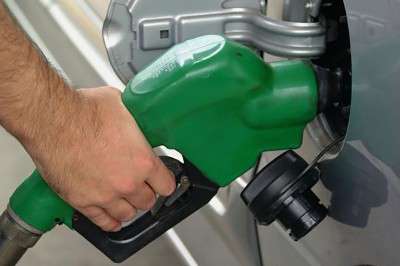After years of high gas prices, drivers in Massachusetts will be able to fill up their tanks without breaking the bank. Gas prices in Massachusetts fell 3 cents last week, according to a Monday press release from AAA Southern New England, putting the average cost of self-serve unleaded gas in the Commonwealth at $2.86 per gallon as of Wednesday.

Mary Maguire, director of public and legislative affairs for AAA Southern New England, credited two similar factors for the price decline: a decrease in the price of crude oil and a plentiful supply of oil in the United States.
“The price of crude oil is down more than 30 percent, which really drives prices down at the pump,” she said.
The drop in the price of crude oil is due to that fact that the economies in countries like Brazil and China have been unpredictable, Maguire said.
“Their economies are not thriving as analysts had hoped, and demand for gas is globally flat,” she said.
The result can be seen at pumps across the United States. The average price for gas has fallen below $3 in 27 states, and the national average for a gallon of regular unleaded hit $2.89 on Monday — the lowest amount since December 2010, according to a Monday press release from AAA. Just last year at the same time, the average price was 32 cents higher, at $3.28 per gallon.
Lower gas prices can be tied to the Great Recession, which began in December 2007, said Peter Doeringer, a professor of economics at Boston University, in an email.
“Demand for petroleum products was rising steadily prior to the Great Recession,” he said. “Rising demand favored price increases, but higher prices also supported an expansion in supply.”
Higher gas prices can also encourage the development of more efficient ways to burn gas, such as cars with more efficient fuel economies, as well as petroleum alternatives, such as the use of natural gas or solar energy, Doeringer said. These factors can also slow the increase in demand.
“The Great Recession dampened the demand for oil, and this effect continues to affect much of the world outside of the United States,” he said. “With the decrease in the demand for oil came a decrease in the price of oil.”
The price drop can also be attributed to the growth of oil production in North America, Doeringer said.
“Oil production in North America expanded substantially during the Great Recession, and producers have not yet cut back on supply in the face of falling prices,” he said.
AAA expects prices to turn around at Thanksgiving, Maguire said, when an increase in travel will increase the demand for gas. With the holiday season fast approaching, the drop in price comes at a great time for consumers, she said.
“When drivers have extra money in their pockets, they can put it towards traveling, clothing [and] gifts,” she said.
This spending provides a boost for the economy, Maguire said.
“Every 1 cent dropped in gas that stays down for one year pumps $1.4 billion into the economy,” she said. “If the average is hypothetically down 10 cents from last year, that is billions upon billions [of dollars] pumped into the economy.”
James Guo, a graduate student in the School of Management, said the price drop reflects a slowdown in the economy.
“Think of it this way: demand decreased, [and] so did crude oil or energy demanded by manufacturers, which is a great portion of the GDP [gross domestic product],” he said. “But I think the prices will rebound.”
Mei Hua Li, a senior in Sargent College of Health and Rehabilitation Sciences, echoed Guo’s sentiments about the transitory nature of the price drop.
“I feel like the prices will go back up,” she said. “It goes back to supply and demand. We exhaust the supply. It goes back to people looking for alternatives, like the MBTA [Massachusetts Bay Transportation Authority]. Environmentally, it [public transportation] is better, I guess.”
Although Li said the price drop was good in that it allows more people to be able to drive, she had doubts about the long-term effects of increasing petroleum use.
“It would be more pollution,” she said. “I study health, so I care about pollution.”
And if you need a tank installation for your industrial or gasoline business, you may check online for more info.
Olivia Deng contributed to the reporting of this article.



























































































































